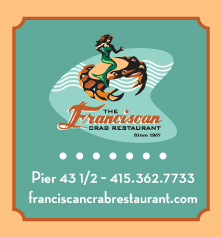FAMILY MATTERS
Protect your family from hidden chemicals
Know Your Plastics
• Avoid phthalates and BPA: Plastics are purely manmade, which means lots of chemicals. But some are safer than others. Avoid plastics that contain hormone-disrupting phthalates, especially polyvinyl chloride (PVC), which often has the recycling code 3. The other thing to look out for is toxic BPA, found in clear, shatterproof plastic and sometimes labeled with the recycling code 7.
• Keep plastic out of the microwave: Even so-called “microwave safe” plastic can leach chemicals into your food when it gets hot, so choose glass or ceramic containers for re-heating food. Don’t cover your food with plastic wrap when you heat it, either; use a ceramic plate or an unbleached paper towel or napkin.
Cooking Smart
• Cook with stainless steel or cast iron pans: Consider alternatives to aluminum pans and utensils, especially those that are older. Anodizing prevents the aluminum from leaching into food, so newer, anodized aluminum cookware is considerably safer. But your best bet is stainless steel or cast iron.
• Avoid nonstick cooking surfaces: Although there’s no denying they make our life easier, nonstick pans contain toxic polyfluorinated chemicals that can be released at high temperatures. While we don’t yet know exactly what the risks are, this is another good argument for switching to stainless steel or cast iron.
Avoid Bottled Water
• Go for the tap (or the filtered tap): Single-use containers may contain phthalates, and the big commercial water jugs may contain toxic BPA. Use a real glass for drinking at home and pick up a reusable stainless steel water bottle for drinks on the go. (It’s also better for the environment!)
Check Children’s Products
• Choose BPA-free baby bottles and plastic cups: Glass bottles are always a good option. And with the increased awareness of the risks of BPA, it’s easy to find baby bottles and sippy cups that are made from safer plastics. Look for BPA-free alternatives, now available in most stores that carry baby bottles. If you don’t see them, ask.
• Toss old, soft plastic toys: Some soft plastic toys made before a ban took effect in February 2009 contain harmful plastic softeners called phthalates. Since these items frequently end up in children’s mouths, you should toss older plastics items and say no to hand-me-downs.
The Breast Cancer Fund works to connect the dots between breast cancer and exposures to chemicals and radiation in our everyday environments. www.breastcancerfund.org


